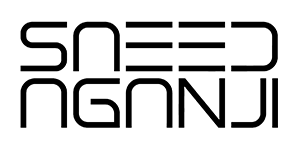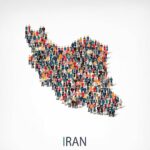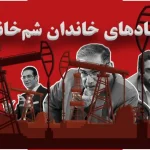Social networks have today created a virtual world whose effects on human life are clearly visible, and every day more users are beginning their virtual lives in this space, facilitating the control and dominance of citizens for governments. Social networks are also witnessing the pervasive presence of politicians, company executives, multinational corporations, industrialists, and the powerful in social networks. During the process of superficial standardization in these networks, the power holders, like various segments of the population, utilize the facilities of these networks and establish a direct connection with ordinary people. Therefore, it can be said that the presence of politicians and the powerful in the realm of social networks can pave the way for controlling these politicians and powerful figures themselves.
Saeed Aganji
he presence of Iranian statesmen and politicians in cyberspace is no exception to this rule. Many Iranian politicians are members of Facebook and Twitter, including Mr. Ali Khamenei, the Leader of the Islamic Republic, who has been on Twitter for three years and on Facebook for one year. However, none of the politicians and statesmen have been as successful in communicating with their audience as Javad Zarif, Iran’s Foreign Minister. Zarif has wisely realized the necessity and importance of being present on social networks and communicating with a broad spectrum of people. Using these networks, he not only reports daily on the meetings he attends but also uses this space to express his official and unofficial positions, establishing contact not only with Iranian audiences but also with foreign ones, and receiving their opinions and feedback on the topics raised.
This is while Internet users in Iran have no choice but to use VPNs, proxies, or other common ways to bypass Internet filtering to access popular global services, including Facebook, Twitter, and YouTube. During the presidential election in 2013, we witnessed many presidential candidates using the potential of social networks like Facebook and Twitter for advertising. With the advent of Hassan Rouhani’s new government, he became more active on his personal website, and the active presence of Mohammad Javad Zarif, the Foreign Minister, made the Facebook and Twitter diplomacy of Iranian politicians more active. These points indicate that Iranian statesmen, especially the President of Iran, like many foreign politicians, have accepted that there is no alternative to direct communication with the people, especially the youth, other than through social networks. They have also realized the importance and impact of social networks like Facebook and Twitter, and the larger audience they have compared to media and news outlets like radio and television. Therefore, based on an interview that the President of Iran had with CNN, stating the “effort to facilitate the Iranian people’s easy access to all information and social networks at the global level,” and also the presence of Iranian statesmen on social networks, it is expected that the Iranian government will take an effective step to remove the filters from these networks.
Social networks play a significant role in disseminating news. Even users who do not read news media become informed of the news through social networks, and in a way, social networks have replaced news media. During the Iranian government delegation’s trip to New York to attend the United Nations meeting, we saw that the news of the President’s meetings and accompanying delegation was published much faster on social networks by the President’s entourage and some Iranian reporters than by the official news media. This indicates an increase in the audience and the level of influence of social networks in societies. For the first time on social networks, we saw that Iran’s Foreign Minister, by providing daily reports and publishing pictures of his meetings with the President, made the news available to users much sooner than the news media. This demonstrates a new approach that Iran’s Foreign Minister has adopted to communicate with domestic and foreign audiences.
It seems that members of Rouhani’s cabinet, by entering cyberspace and joining social networks, are trying to engage in the focal point of social wisdom – the social capital of individuals in a society – with the aim of creating trust among them, and then infiltrate the intermediate social layers – unions, groups, parties, and media – to realize their opinions and views.
The nature of power in today’s world has undergone fundamental changes. The effect of good public relations, which is most directly implementable on social networks, is an irresistible temptation for many of today’s Iranian politicians. Iranian statesmen are aware of the heavy weight of these networks in shaping public opinion. Iranian citizens, who have always been thirsty for impactful communication (while preserving human dignity) with politicians due to the non-democratic nature of power, have also shown that they do not ignore the hidden opportunities in social networks for this purpose. Social networking, derived from Iranian politicians, is a fresh commodity that has a broad demand among citizens, and this demand will create its supply, and other politicians will be drawn to this field sooner or later.









